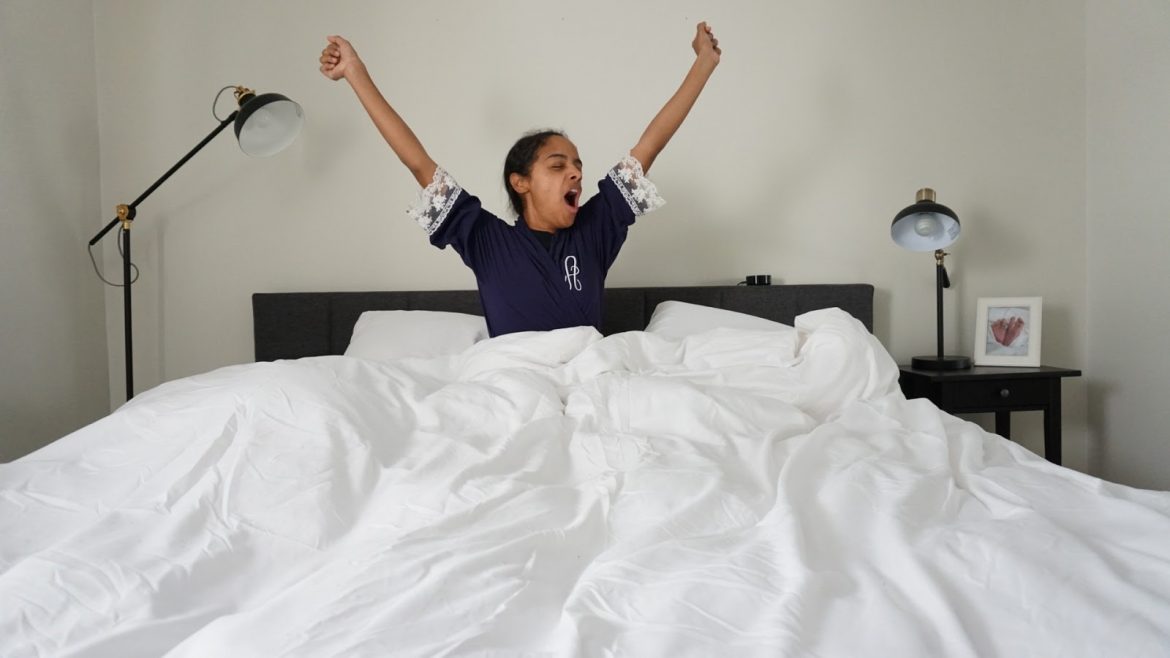Fitness is not only a way of life. It is also a profitable industry worth billions of dollars. It is being marketed as not an option, but a lifestyle. Zero calorie drinks, superfoods like avocados and chia seeds, diets like keto diets and juice fasts, gyms, Zumba classes, CrossFit, protein bars – all form a conglomerate that makes for a very profitable business. Of course, these industries try to battle the growing obesity epidemic, but it is also an expensive lifestyle to maintain.
Your fitness journey is a lifelong commitment. The only one stopping yourself from achieving your goals is you. It is about overcoming laziness, willingness to sweat it out, sticking to diet plans and schedules and resting your body when you need to. However, with all the information out there about diet and workout plans, here is what no one tells you about health. It’s about one of your favourite things to do but is painfully neglected – sleep.
Your Weight and Sleep
Sleep is essential for your body to function as it is supposed to. The effect of sleep deprivation can be seen in hormones, the energy levels and eating habits of an individual. The levels of hormones like leptin and ghrelin fluctuate with lack of sleep. The hormone leptin is produced by fat cells in the body and regulates appetite. While you sleep, the levels of leptin rise telling your brain there is enough energy and no immediate requirement for food. However, with lack of sleep, the levels of leptin decreases, stirring up feelings of hunger. The food that you consume at this time is food that you do not need. Therefore, your body then stores this as fat.

The hormone ghrelin is produced by the stomach which kindles appetite and stores fat. The levels of ghrelin increase with lack of sleep signaling the brain to feel hungry and reach for a snack. Both the decrease in leptin levels and an increase in ghrelin levels signals one thing to the brain – hunger.
Midnight snacks are often not the healthiest option out there. The culmination of these chemical reactions in the body and the unhealthy eating habits leads to weight gain. By storing fat in the body, it becomes harder to see results even with regular workout regimes.
Sleep deprivation can be caused by numerous factors including stress, depression, lack of mattress education, sleeping disorders, pregnancy, unhealthy eating habits, medical conditions and caffeine. It is important to identify the cause in your case and address it immediately.
Diabetes and Sleep
One of the more serious health complications from lack of sleep is diabetes. The hormone insulin is secreted by the pancreas and is required to convert glucose into energy. Insulin is the hormone that balances out the sugar levels in the blood. Sleep deprivation increases the insulin resistance in the body and prolonged resistance can cause Type 2 diabetes. This life-long condition needs medication, dietary changes and regular check-ups to keep under control.
Energy levels and Sleep
This is one of the most obvious consequences of sleep deprivation. In eight hours of sleep, the body begins its repair process. Be it physical exhaustion or mental strain, the body quietly heals itself, so you can be prepared for the next day. However, with sleep deprivation, people do not have the energy to function well. They remain demotivated and irritable to conduct efficiently. Brands like Dreamcloud have taken it on themselves to improve the quality of sleep of its users by creating beautiful king size hybrid mattresses that provide enhanced comfort. Nectar’s durable king size sheets made from organic cotton is a match made in heaven. With a lot of detail going in design and production, these manufacturers are determined to extract its users from the depths of sleep deprivation.
The Stress Hormone and Sleep
Cortisol is a hormone produced in the adrenal glands and travels around the body. It is often called the stress hormone but does much more. As it travels through the body, it controls blood sugar levels, acts as an anti-inflammatory agent and regulates metabolism. An individual with normal sleep cycles experiences a decrease in cortisol levels during bedtime. However, with sleep deprivation, the levels of this hormone remain elevated. This fluctuation can wreak havoc on your metabolism, mental state, encourage weight gain and diabetes. Sleep deprivation can be caused by many external factors and one of the most common complaints specialists hear is a snoring partner. Pillows to reduce snoring can change your life for the better.
Mental Health and Sleep

The topic of mental health is discussed quite often, today. With increasing levels of stress, suicide cases, medically diagnosed depressed individuals and children with learning disabilities, mental health care is gradually gaining prominence in recent times. However, most individuals with mental health issues face the same problem come bedtime. They do not get adequate sleep. In many cases, it was observed that individuals began facing insomnia much earlier than the other symptoms of depression. It has led experts to determine that lack of sleep is not only a consequence of illnesses like depression but also a contributing factor. Practicing meditation and yoga on a vintage rug in your bedroom or out in the park can help you find mindfulness and stillness that you crave.
Sleep is also very important in the development of the brain in a child. Lack of sleep among children have shown effects of learning impairments, a problem with forming and retaining memories and behavioural changes. Many young parents opt for better mattresses along with a strong queen foundation for children to find restful sleep. However, if the problem persists, it is advisable to meet a specialist who can help avoid future health complications.
While experts are still researching more correlations between sleep and health, we have more than enough information to draw a critical conclusion that without sufficient sleep, your mental and physical health suffers tremendously. As people wear lack of sleep as a badge of honour, they do not realize what they are advocating is extremely dangerous to themselves and to others who are inspired by them. The long-term implications of sleepless nights are tremendous, but it is being constantly neglected and underestimated by people.
While masses continue to spend money on expensive medical care, diets and fitness activities, an easy way out lies right in front of them. Understanding how the body works is Step One. This is not to discount the importance of exercise and healthy eating, but to raise awareness of an equally important element in fitness. If you know people who are suffering from sleep deprivation, reach out to them and help them understand why the problem needs to be addressed immediately.

